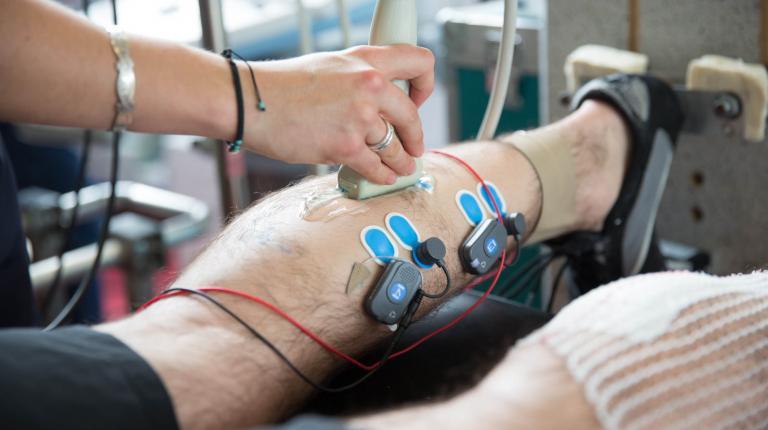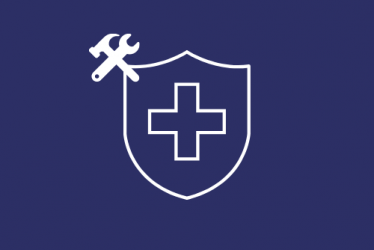Research Program
PERSEE Program – research contract 2019-2024
The achievement of sports performance is an eminently complex process based on a rigorous and subtle organization of training and recovery processes favorable to the development of adaptations allowing athletes to cope with a constrained and highly competitive environment. The 2 main objectives of the 2019-2024 research program of the SEP laboratory, which are (1) performance optimization and (2) injury prevention, are supported by a transversal approach contributing to the search seek for optimal athlete’s lifestyle and training conditions. Entitled PERSEE*, this program crosses five scientific areas (biomechanics, neurosciences, physiology, psychology and sociology of sport), allowing to better understand the different scales of sports performance, from collective organizations to the behavior of the muscle-tendon unit.
This multidisciplinary approach contributes to the development of 3 research topics :
One of the specificities of the SEP Laboratory is to work in close collaboration with French teams at INSEP as part of the scientific support of the Olympic and Paralympic federations. The lab missions are to analyze, innovate and actively participate in knowledge and tech transfer of and technology for the benefit of high-level sport performance. These actions are part of the perspective of major international events, in particular the Olympic and Paralympic Games, including those that will take place in Paris in 2024. The SEP Laboratory is part of the French-speaking network ReFORM, which received in 2018 the label "Research Centre for prevention of injury and protection of athlete health" from the International Olympic Committee.
*Performance optimization, injury prevention and lifestyle/wellbeing of the athlete.
INSTITUTIONAL RECOGNITION

As part of the National Research Programm on Very High Sports Performance launched in the perspective of the Olympic and Paralympic Games of Paris 2024, the SEP Laboratory conducts 6 projects funded/supported by the National Research Agency (ANR) and the General Secretariat for Investment (SGPI) :
- FULGUR (project leader, €1.9 million), produced in collaboration with the French Federations of Athletics, Ice Sports and Rugby, the CNRS, the CEA, the Université Côte d'Azur, Université Jean Monnet Saint-Etienne, Université Savoie Mont Blanc, Université de Nantes, Université Paris Saclay, Supersonic Imagine and Natural Grass.
- HYPOXPERF (projetc leader, €1.3M), carried out in collaboration with the French Federations of Canoeing and Paddling Sports, Cycling, Judo, Jujitsu, Kendo and associated disciplines, Wrestling and associated disciplines, Swimming and Rugby, the University Claude Bernard Lyon 1 (Inter-university Laboratory of Biology of the Motricity, LIBM, EA 7424), the University of Bourgogne-Franche-Comté (Laboratory Culture, Sport, Health, Society, C3S, EA 4660), the association for the research and the promotion of the training in hypoventilation (ARPEH) the University of Perpignan Via Domitia (Laboratoire Européen Performance Santé Altitude, LEPSA, EA 4604 and Images Espace-Dev (IED) UMR 228), the University of Poitiers (Laboratoire Mobilité Vieillissement et Exercice, MOVE, EA 6314), the University of Grenoble (Laboratoire Hypoxie Physiopathologie cardiovasculaire et Respiratoire, HP2, INSERM U1042), the University of Strasbourg (Mitochondria, Oxidative Stress and Muscular Protection Laboratory, MSP, EA 3072), the National School of Mountain Sports (ENSM), the National Center for Altitude Training (CNEA) and the company INSIDE THE ATHLETE 3. 0 (ITA 3.0)
- PARAPERF (partner, 2,2 M€)
- DDAY (partner, 1,4 M€)

The SEP laboratory is member of the Groupement de Recherche Sport & Activité Physique (GDR Sport & APS) created by the CNRS in 2019. The objective of the GDR Sport & APS is to federate, in a perspective of many and multi- and interdisciplinary research, all the actors of sport and physical activity, by synergizing research laboratories, sports manufacturers, and users such as sports federations, their athletes and more generally the citizen. The SEP Laboratory participates to the animation of the GDR through its director, Dr Gaël Guilhem, member of the scientific board of the GDR Sport & APS.

The SEP Laboratory is part of the French-speaking network ReFORM, which received in 2018 the label "Research Centre for prevention of injury and protection of athlete health" from the International Olympic Committee. ReFORM receives support from the IOC to conduct multi-center research aimed at developing original knowledge at the interface of scientific and clinical issues. This research is conducted in interaction with the other 10 IOC centres.

The Ministry of Higher Education, Research and Innovation (MESRI) has entrusted ANRT with the implementation of the Cifre (Industrial Convention on Training through Research). Its objective is to promote the development of public-private partnership research and to place PhD students in employment conditions. The SEP laboratory highlights these funding mechanisms to strengthen relations with public and private partners and the professional integration of its PhD students in sports federations and industry.

The premises of the SEP laboratory and in particular its scientific platform which was named ‘Espace Scientifique Henry Vandewalle’ in 2020 obtained a biomedical research site authorization issued by the Regional Health Agency of Île de France (ARS IDF) in November 2016.

The SEP Laboratory is evaluated by the High Council for the Evaluation of Research and Higher Education (HCERES) ). The last evaluation occurred in January 2018 and the next one is expected in 2023-204 after the 5 year program. The HCERES evaluates research entities benefiting from public labeling and funding. These evaluations are conducted in a collegial manner by peers. Through explicit criteria, the evaluation considers the plurality of missions, the diversity of the research and, where appropriate, the complexity of its interdisciplinary dimension. Each criterion is based on observable facts and assesses their value. Implemented according to a 5 year program, this approach first helps the staff of the entities evaluated to better appreciate their activities and results in relation to their missions. It allows them to position themselves in their regional, national and international environment. It also provides higher education institutions and research organisations with information to facilitate the management of research. Finally, the evaluation provides the general public with information on research entities in France (see the report for the 2013-2017 contract below).



